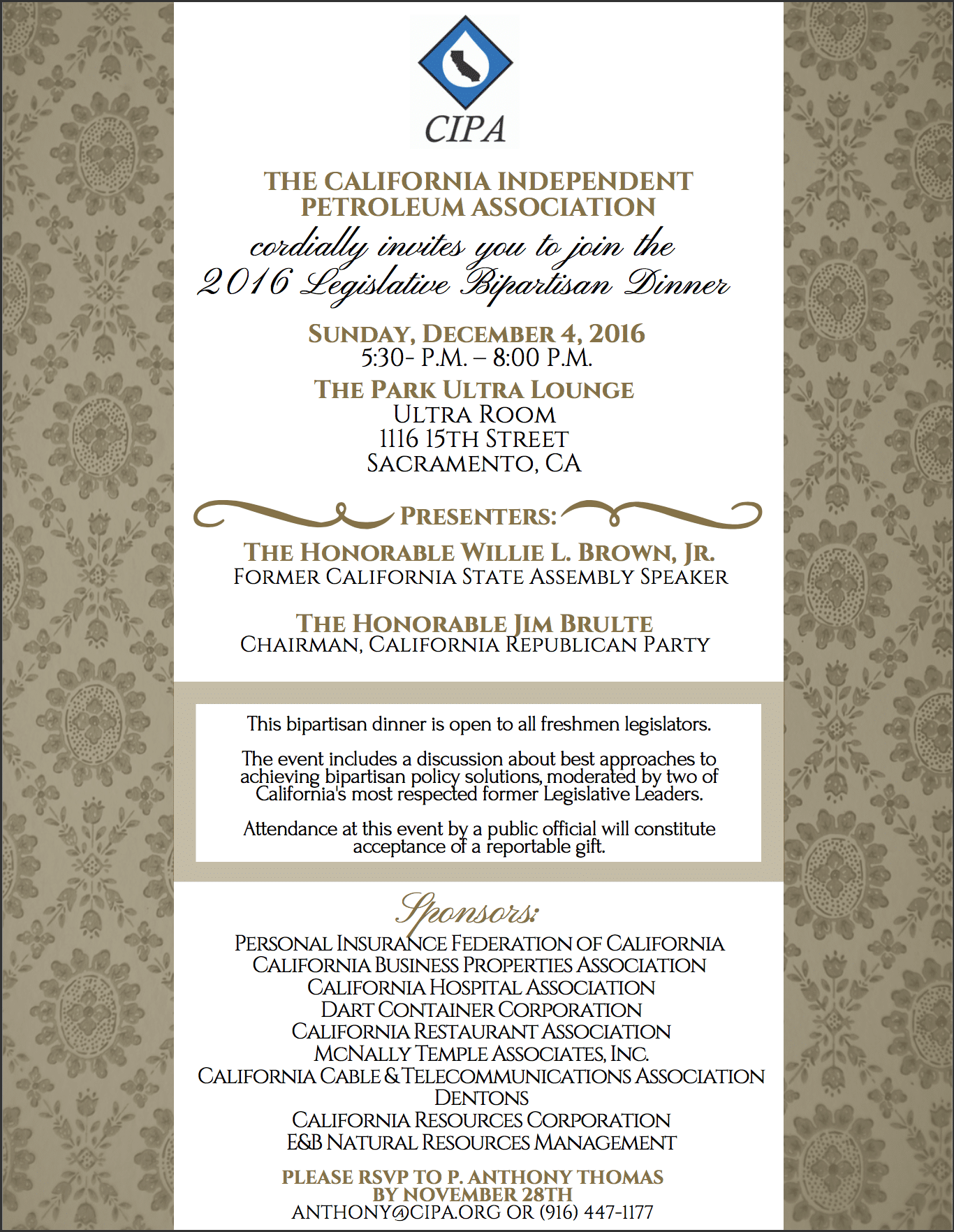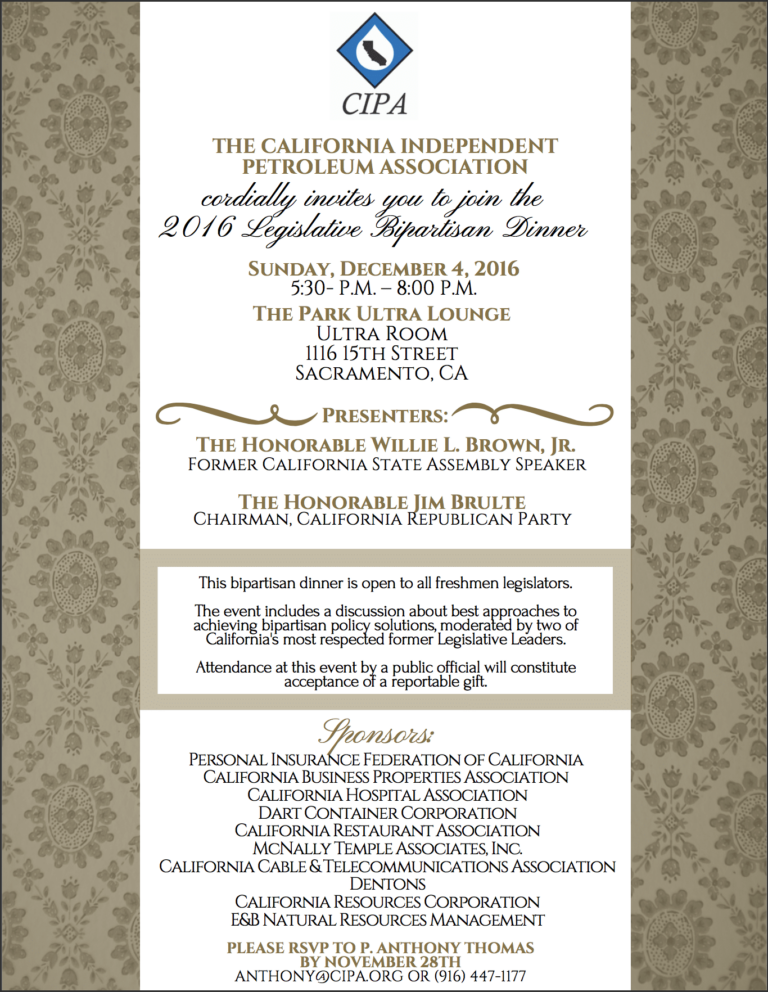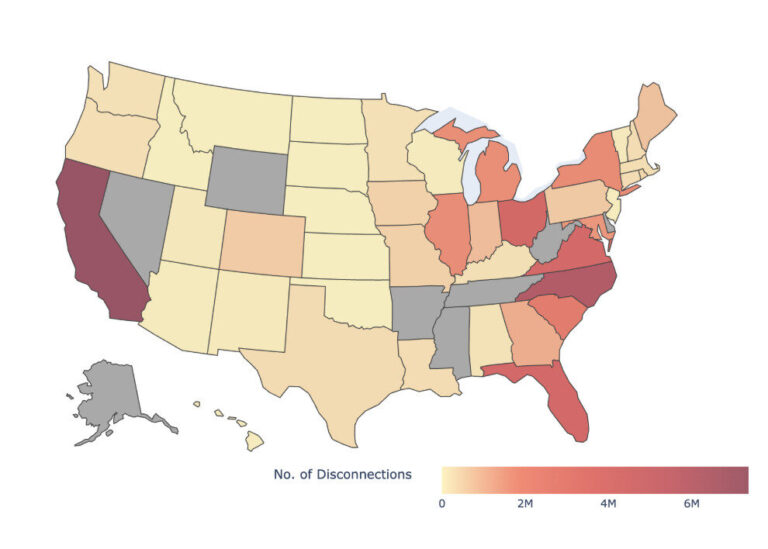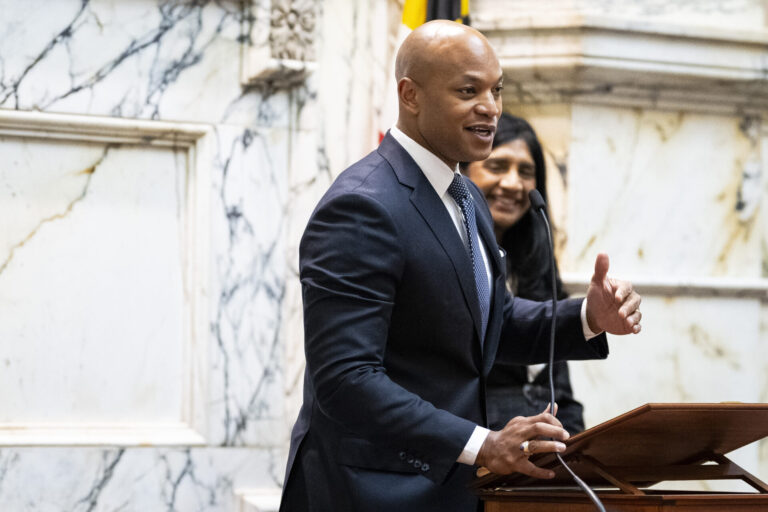California’s newest legislators have first chance to cozy up to Big Oil on Sunday night

Californians elected 27 new members of its State Assembly in November, and 9 new members of its State Senate. Voters may be wondering whether their new representative will be working on behalf of the public interest, or on behalf of California’s Big Oil industry. They will get a hint of an answer this weekend, before the legislators ever swear the oaths of their new office.
The Energy and Policy Institute has learned that some of California’s big oil industry players are hosting a dinner this Sunday night exclusively for the state’s newly elected freshmen legislators.

The event, at Sacramento’s swanky Park Ultra Lounge, is hosted by the California Independent Petroleum Association (CIPA), a trade association supported by California oil and gas producers as well as global oil majors. CIPA is a long-time veteran of spending oil dollars to stop strong climate and clean energy legislation from passing in California:
- From 2009 until Nov. 8, 2016, CIPA spent over $5 million on contributions to political candidates and committees.
- CIPA spent over $3 million on lobbying over the same period.
- In the most recent session (2015-2016) alone, CIPA spent $950,811 on lobbying.
- Chevron contributed over $500,000 to CIPA’s PAC in 2015-2016 alone.
Other sponsors of Sunday night’s dinner include oil companies like the California Resources Corporation and E&B Corporation, and petroleum-dependent plastics manufacturer Dart Container.
Oil companies and trade groups spent handsomely on lobbying in California’s 2015-2016 legislative session, achieving mixed results. California passed the landmark SB 32 climate legislation this fall over Big Oil’s objections; that law requires the state to cut its greenhouse gas pollution by 40% by the year 2030. The oil industry’s political spending earned it much better returns in 2015, when it swayed enough Democrats to kill legislation that would have mandated a 50% cut in California’s petroleum use.
Given the lumps the industry took in 2016, oil companies know they will need to win over a new crop of freshmen if they want to win the climate battles to come in Sacramento, and they spent big in the 2016 election cycle toward those ends. In addition to millions spent on candidates who lost or are incumbents, Big Oil spent heavily on a few potential freshmen they saw as promising prospects, some of whom ended up winning.
The awkwardly dubbed “Coalition for California’s Middle Class Including Energy Companies Who Produce Oil, Gas, Jobs and Pay Taxes” provides one example of oil industry spending this election. That mouthful of a name is code for the four oil companies that funded it: Chevron, Tesoro, Valero, and the California Resources Corporation, which collectively provided the PAC with its $6.6 million. Almost $2 million of that oil money funded independent expenditures for just three Democratic candidates for the Assembly, according to an analysis of state records:
- Cecilia Aguiar-Curry (D) won in the 4th District, where the oil PAC spent $532,487.29 for her. Here’s their ad they made on her behalf.
- Raul Bocanegra (D) badly outspent another Democrat to win the 39th Assembly District. The Chevron/Tesoro/Valero/CRC PAC spent $440,279 on his behalf. Here’s the ad they made for him.
- Tim Grayson (D) won the 14th Assembly District. The oil PAC spent $939,678.32 on his behalf. Here’s the ad they made for him.
One race that went decidedly against the oil industry was in CA’s 47th District, where that oil PAC spent $1,111,311 on their top candidate, “Chevron Cheryl” Brown, who ended up losing her seat to Eloise Reyes.
Other oil PACs spent handsomely on Aguiar-Curry, Bocanegra and Grayson, as well as other victorious freshmen, like Bill Dodd, a Democrat who won in the 3rd Senate District.
In some cases, Big Oil skipped the PACs’ independent expenditures and just gave directly to their favored candidates. Blanca Rubio, a Democrat who won Assembly District 48, received the maximum allowable $8,400 from Chevron directly, plus another $2,500 from Dart Container and $1,500 from Exxon, according to state data.
CIPA gave directly to multiple winning freshmen
CIPA, the main sponsor of Sunday night’s dinner, gave directly to the campaign efforts of 12 victorious freshmen via its own PAC:
- Dante Acosta (R) – Assembly District 25: $1,000
- Cecilia Aguiar-Curry (D) – Assembly District 4: $1,000
- Raul Bocanegra (D) – Assembly District 39: $8,400 (the maximum contribution for a primary and general election combined.)
- Phillip Chen (R) – Assembly District 55: $4,000
- Steven Choi (R) – Assembly District 68: $1,500
- Jordan Cunningham (R) – Assembly District 35: $4,200 (the maximum contribution for a general election.)
- Vince Fong (R) – Assembly District 34: $8,400 (the maximum contribution for a primary and general election combined.)
- Tim Grayson (D) – Assembly District 14: $4,200 (the maximum contribution for a general election.)
- Randy Voepel (R) – Assembly District 71: $1,000
- Toni Atkins (D) – Senate District 39: $2,000
- Scott Wilk (R) – Senate District 21: $2,000
- Steven Bradford (D) – Senate District 35: $3,000
Other newly elected freshmen who will assume office in January include:
- Marc Berman (D) – Assembly District 24
- Anna Caballero (D) – Assembly District 30
- Heath Flora (R) – Assembly District 12
- Laura Friedman (D) – Assembly District 43
- Todd Gloria (D) – Assembly District 78
- Ash Kalra (D) – Assembly District 27
- Monique Limon (D) – Assembly District 37
- Al Muratsuchi (D) – Assembly District 65
- Sharon Quirk-Silva (D) – Assembly District 65
- Eloise Reyes (D) – Assembly District 47
- Blanca Rubio (D) – Assembly District 48
- Nancy Skinner (D) – Senate District 9
- Bill Dodd (D) – Senate District 3
- Josh Newman (D) – Senate District 29
- Anthony Portantino, Jr. (D) – Senate District 25
- Henry Stern (D) – Senate District 27
- Scott Wiener (D) – Senate District 11
Guess who’s coming to dinner?
Just because those candidates did not receive money from CIPA doesn’t mean they did not take money from other oil interests. And in fairness, some freshmen likely were not offered Big Oil money, and a few may even have refused it. The California Democratic Party announced after the election it would no longer take oil money, a positive step, though it made no such pledge on behalf of its candidates.
All the newly elected freshmen have a first initial opportunity to prove that their loyalties do not lie with Big Oil by skipping Sunday’s dinner. Any freshmen who do attend the CIPA soiree are required to report the event as a gift to the California Fair Political Practices Commission early next year.
EPI will also attend the event on Sunday night to see who attends.



